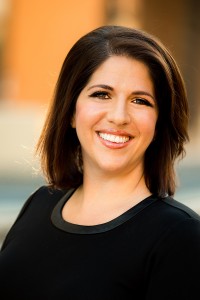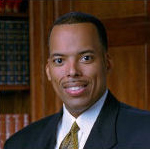
This could take awhile, and that’s with me limiting myself to contested races. First, the Senate.
SD04
Brandon Creighton
Steven Toth
SD07
Paul Bettencourt
James Wilson
Jim Davis
SD15
John Whitmire
Damian LaCroix
Ron Hale
SD17
Joan Huffman
Derek Anthony
Rita Lucido
Here’s a summary chart. For the record, Davis, Whitmire, LaCroix, and Lucido are all Dems, the rest are Rs.
Candidate Office Raised Spent Cash on hand
===================================================
Creighton SD04 296,267 205,591 1,002,464
Toth SD04 107,752 48,048 123,116
Bettencourt SD07 140,100 55,873 103,041
Wilson SD07 7,675 5,129 3,224
Davis SD07 1,250 1,250 0
Whitmire SD15 298,874 148,973 6,978,885
LaCroix SD15 16,329 33,866 0
Hale SD15 123 1,441 123
Huffman SD17 136,600 91,142 701,583
Anthony SD17 0 0 0
Lucido SD17 41,625 10,489 29,829
Technically, SD04 is not on the ballot. It’s now a vacant seat due to the resignation in October of Tommy Williams, and the special election to fill it has not been set yet; I presume it will be in May. Reps. Creighton and Toth aren’t the only announced candidates, but they both have the right amount of crazy, and at least in Creighton’s case plenty of money as well. It’s a statement on how far our politics have gone that I find myself sorry to see Tommy Williams depart. He was awful in many ways, but as the last session demonstrated, when push came to shove he was fairly well grounded in reality, and he did a more than creditable job as Senate Finance Chair. I have no real hope for either Creighton or Toth to meet that standard, and the Senate will get that much stupider in 2015.
Paul Bettencourt can go ahead and start measuring the drapes in Dan Patrick’s office. I honestly hadn’t even realized he had a primary opponent till I started doing this post. The only questions is in what ways will he be different than Patrick as Senator. Every once in awhile, Patrick landed on the right side of an issue, and as his tenure as Public Ed chair demonstrated, he was capable of playing well with others and doing collaborative work when he put his mind to it. Doesn’t come remotely close to balancing the scales on him, but one takes what one can. Bettencourt is a smart guy, and based on my own encounters with him he’s personable enough to fit in well in the Senate, likely better than Patrick ever did. If he has it in mind to serve the public and not just a seething little slice of it, he could do some good. The bar I’m setting is basically lying on the ground, and there’s a good chance he’ll fail to clear it. But there is some potential there. It’s all up to him.
I don’t have anything new to add to the SD15 Democratic primary race. I just don’t see anything to suggest that the dynamic of the race has changed.
I hadn’t realized Joan Huffman had a primary challenger until I started this post. Doesn’t look like she has much to worry about. I’m very interested to see how Rita Lucido does with fundraising. Senators don’t usually draw serious November challengers. The district is drawn to be solidly Republican, but Lucido is the first opponent Huffman has had since the 2008 special election runoff. I’m very curious to see if Lucido can at least begin to close the gap.
On to the House:
HD129
Sheryl Berg
Briscoe Cain
Mary Huls
Jeffrey Larson
Chuck Maricle
Dennis Paul
Brent Perry
John Gay
HD131
Alma Allen
Azuwuike Okorafor
HD132
Michael Franks
Ann Hodge
Justin Perryman
Mike Schofield
Luis Lopez
HD133
Jim Murphy
Laura Nicol
HD134
Sarah Davis
Bonnie Parker
Alison Ruff
HD135
Gary Elkins
Moiz Abbas
HD137
Gene Wu
Morad Fiki
HD138
Dwayne Bohac
Fred Vernon
HD144
Mary Ann Perez
Gilbert Pena
HD145
Carol Alvarado
Susan Delgado
HD148
Jessica Farrar
Chris Carmona
HD149
Hubert Vo
Al Hoang
Nghi Ho
HD150
Debbie Riddle
Tony Noun
Amy Perez
HDs 129 and 132 are open. Each has multiple Republicans, all listed first in alphabetical order; the Dem in each race is listed at the end. In all other districts the incumbent is first, followed by any primary opponents, then any November opponents. I will note at this point that the last time I mentioned HD129, I wrote that Democratic candidate John Gay appeared to me to be the same person that had run in CD14 in 2012 as a Republican, based on what I could and could not find on the Internet. Two Democrats in HD129 contacted me after that was published to assure me that I had gotten it wrong, that there were two completely different individuals named John Gay, and that the one running as a Dem in HD129 was truly a Democrat. While I was never able to speak to this John Gay myself to ascertain that with him – I left him two phone messages and never got a call back – other information I found based on what these folks told me convinced me they were right and I was mistaken. That post was corrected, but I’m pointing this out here for those of you who might not have seen that correction.
With that out of the way, here’s the summary:
Candidate Office Raised Spent Cash on hand
===================================================
Berg - R HD129 28,101 13,597 29,530
Cain - R HD129 17,246 9,614 4,131
Huls - R HD129 1,254 3,784 1,969
Larson - R HD129 325 1,130 4,226
Maricle - R HD129 3,520 30,207 879
Paul - R HD129 14,495 19,436 95,058
Perry - R HD129 51,297 19,100 52,687
Gay - D HD129 0 1,221 778
Allen - D HD131 8,877 13,662 21,573
Okorafor - D HD131 0 1,689 0
Franks - R HD132 0 4,604 43,396
Hodge - R HD132 51,330 19,741 41,925
Perryman - R HD132 26,550 7,178 30,788
Schofield - R HD132 43,665 15,449 45.454
Lopez - D HD132
Murphy - R HD133 102,828 44,004 184,174
Nicol - D HD133 2,380 750 1,640
Davis - R HD134 171,990 70,369 145,561
Parker - R HD134 0 10,213 10,161
Ruff - D HD134 0 750 0
Elkins - R HD135 28,150 17,136 331,672
Abbas - D HD135 0 0 0
Wu - D HD137 15,390 20,439 11,641
Fiki - R HD137 2,320 167 2,320
Bohac - R HD138 35,975 45,797 14,168
Vernon - D HD138 500 0 500
Perez - D HD144 18,400 23,705 34,386
Pena - R HD144 0 750 0
Alvarado - D HD145 51,915 6,585 54,035
Delgado - D HD145 0 750 0
Farrar - D HD148 37,771 6,739 75,861
Carmona - R HD148 325 883 2,442
Vo - D HD149 7,739 9,129 20,935
Hoang - R HD149 4,550 17,550 4,222
Ho - R HD149 4,198 1,211 3,736
Riddle - R HD150 23,200 15,327 61,809
Noun - R HD150 16,879 83,388 43,490
Perez - D HD150 3,139 452 116
I’m not going to go into much detail here. Several candidates, especially in the GOP primary in HD129, have loaned themselves money or are spending personal funds on campaign expenses. If you see a big disparity between cash on hand and the other totals, that’s usually why. I’m impressed by the amount Debbie Riddle’s primary challenger is spending, though I have no idea whether it will have an effect or not. I’m as impressed in the opposite direction by Bonnie Parker in HD134. Maybe she’s just getting warmed up, I don’t know. I figure her 8 day report will tell a more interesting story. What catches your eye among these names and numbers?




























